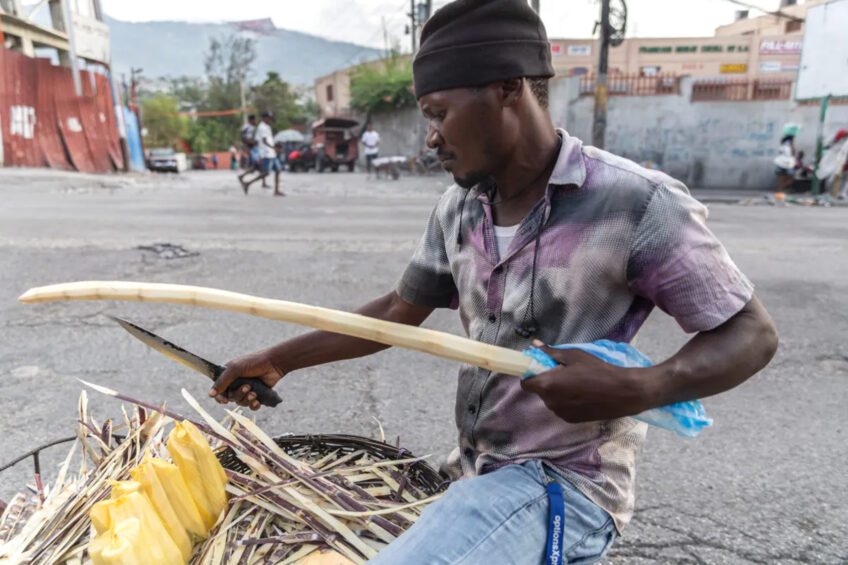Randolph Wilson Bromery, who died last week in Danvers from prostate cancer, was a pioneer in the air, the federal government and the ivory tower. He had just turned 87.
During World War II, Bromery was a Tuskegee Airman, placing him among the first black pilots in the military. After flying escort missions in Italy, he left the Army on a medical discharge because of appendicitis.
Long before the current campaign to increase the number of African American scientists, Bromery was an expert in Earth science. He spent two decades in Washington working for the U.S. Geological Survey, directing an airborne research group.
In 1969, Bromery arrived at the University of Massachusetts Amherst as chairman of its geology department. His transition to higher education was about to lead to his accomplishment of the greatest historical significance, even more so than being a fabled Tuskegee Airman.
He was elevated to vice chancellor of student affairs in 1970. The next year, Chancellor Oswald Tippo resigned. Bromery was named interim chancellor and, in 1972, chancellor of UMass Amherst.
His hiring made Bromery the second known African American to lead a historically white university, assuming the acting role several months after Clifton R. Wharton Jr., a son of Roxbury, became the first at Michigan State University.
Both had been preceded a century earlier by Patrick Healy, who became president of Georgetown University in 1873. But nobody knew Healy, born a slave, was black. He was passing as a white Jesuit priest.
In a 2009 interview, Bromery credited Robert C. Wood, then president of the UMass system, with engineering his elevation to chancellor. Bromery already knew Wood, a former secretary of the U.S. Department of Housing and Urban Development, from federal government circles, though not well.
It was Wood who appointed Bromery interim chancellor and asked him to apply for the permanent job, which university trustees gave him six months later.
“I had no previous experience running a public college or university, especially one with 25,000 students,” Bromery recalled in 2009. “It takes a person like Bob Wood to take that risk. A lot of people wouldn’t take that risk.”
Though he had left the federal government because he wanted to teach, Bromery was up to the administrative task before him.
“I learned how to manage in the federal government because I built my own research branch,” he explained in the interview. “When (Wood) came in as president, I understood his language about how you manage things.”
Bromery remained the chancellor for eight years, resigning in 1979 and returning to the faculty. His leadership served as an inspiration for other black college administrators. Charles Desmond, who chairs the Massachusetts Board of Higher Education, calls Bromery “the godfather in Massachusetts.”
As chancellor, Bromery secured archival space for the W.E.B. Du Bois papers in the university’s library. He was also an inadvertent witness to a historic event in Boston. He was crossing City Hall Plaza to meet Wood when Ted Landsmark, then a civil rights lawyer, was attacked by anti-busing protesters who broke his nose with the long staff of an American flag.
Bromery led UMass Amherst so capably that other colleges in the state kept summoning him to straighten out their management problems. He was acting president of Westfield State College in the 1980s, president of Springfield College in the 1990s and acting president of Roxbury Community College in 2002-2003. He also served as chancellor of the state Board of Regents of Higher Education in 1990-1991, resigning to show his opposition to tuition increases.
When acting Governor Jane Swift asked him to temporarily lead RCC, Bromery said that “I couldn’t say no.” Why? “They essentially said if I didn’t take it, they would close it.”
Bromery said he could not let students from the black community be deprived of opportunities to earn degrees or acquire job skills. So he came out of retirement, saved RCC and cleaned up the mess.
“That was the worst management I’ve seen, financial management,” he said in the interview. “They had a series of presidents in there who didn’t really have the ability to run the college.”
Over the years, Bromery served on a number of corporate boards, including John Hancock Life Insurance, Chase Manhattan Bank, AT&T, and Exxon.
“I know how to find oil,” he said by way of explaining his service on Exxon’s board.
He served as a mineral resource consultant to several West and Central African countries, primarily with the Kennecott Copper Co. He also served as president of the Geological Society of America.
Bromery was born in 1926 in segregated Cumberland in western Maryland. He earned a bachelor’s degree in mathematics from Howard University, a master’s degree in geology from American University and a doctorate in geology from Johns Hopkins University.
Besides his wife, Cecile, Bromery leaves sons Keith of Tallahassee, Fla., Dennis of Amherst, David of Ellicott City, Md., and Chris of Lynn; a daughter, Carol Ann-Thompson of Baltimore; a sister, Bettyjane Coker of Lanham, Md.; a brother, Robert of Bowie, Md.; 11 grandchildren; and three great-grandchildren.
A memorial service was held in Douglass Funeral Home in Amherst. The Bromerys had been longtime residents of Amherst before moving to Peabody last year.






